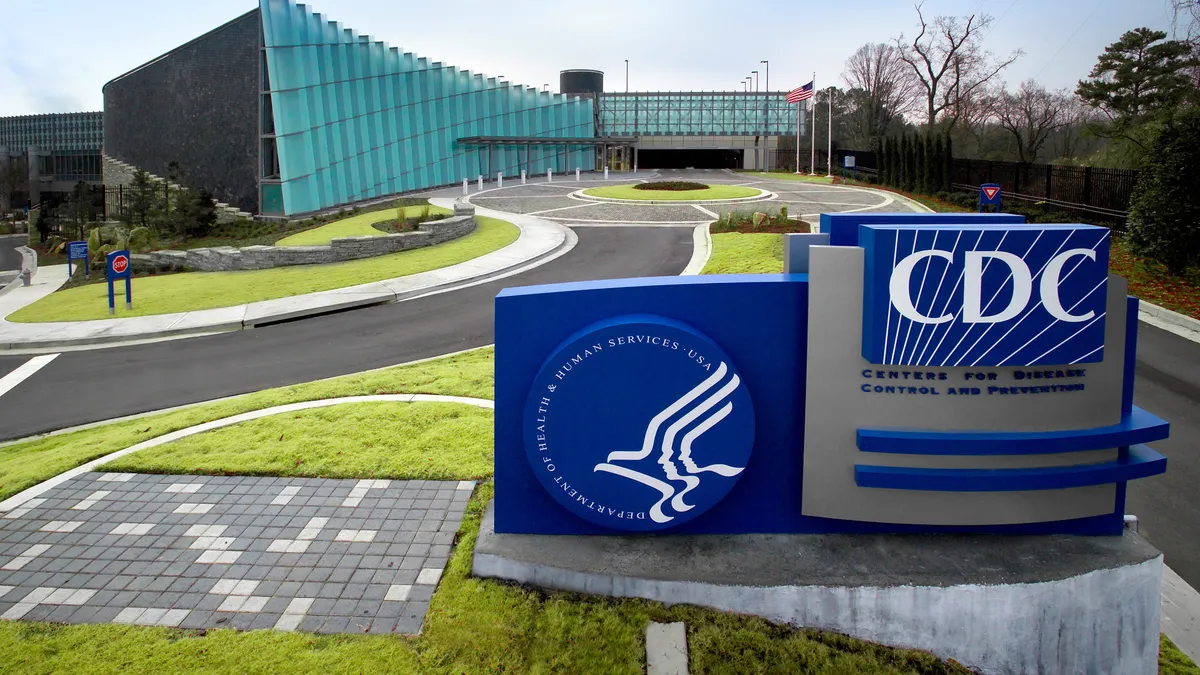Dive Brief:
-
Clinical laboratories are urging the Centers for Disease Control and Prevention to take "immediate steps" to change its guidance on COVID-19 antibody testing, arguing they will discourage use of the tests.
-
The American Clinical Laboratory Association wrote to the agency Monday, citing a section of the guidelines that advises against the use of antibody testing to make decisions about who can return to work and other places where people congregate.
-
ACLA contends providers and employers have taken CDC’s guidelines to mean antibody tests “have no utility in the management of individuals and populations in the workplace and congregate settings.” Those COVID-19 antibody testing services are partly offsetting declines in routine test volumes at the labs ACLA represents.
Dive Insight:
CDC's interim guidelines on antibody tests published last month reflect questions about the extent to which antibodies confer immunity. The agency said serologic assays should not be used to make decisions about whether an individual can return to work, or if it is safe for people to enter or stay at schools, dormitories and correctional facilities.
The World Health Organization has expressed similar reservations about the use of antibody test results, but has faced some criticism for excessive caution. Writing in the New England Journal of Medicine this month, a group of medical doctors and public health experts said WHO is “dead wrong” to wait for irrefutable evidence before using antibody tests.
ACLA represents companies including LabCorp and Quest Diagnostics that offer COVID-19 antibody testing services. Those services haven't been big enough business to cover losses in routine testing volumes that resulted from COVID-19's hit to more regular care — but the COVID-19 testing lines are certainly contributing.
CMS in late May set the reimbursement rate for the most common form of antibody test at $42, compared to the $100 it pays for molecular tests. Quest, for instance, reported earlier this month that routine testing volumes have improved in some regions since late April, and if that uptick along with COVID-19 molecular and antibody testing volume trends continue, the company's adjusted earnings per share this quarter could prove to be slightly profitable.
While ACLA said it backs the need for more research into the link between antibodies and immunity, it called CDC’s guidelines too strongly worded against the use of serologic assays.
“These guidelines contradict recent statements made by CDC officials regarding the intent of the antibody guidance. On a May 27 call with ACLA members, CDC officials stated that while there is not enough evidence to support the use of antibody tests as the sole factor for reopening or returning to work, antibody tests may be one factor to consider,” ACLA President Julie Khani wrote.
ACLA contends the position CDC officials expressed on the call is more logical than the guidelines. That view reflects a belief that the results of antibody tests are worth considering alongside other sources of information when making decisions about whether to allow someone to return to work or school.
The trade group also said CDC’s focus on whether people with confirmed COVID-19 infections can return to work overlooks the broader role antibody testing can play in restarting the economy. ACLA cites the example of the use of antibody tests in the follow-up of asymptomatic people working at manufacturing sites and other “closed” environments. Using antibody testing alongside PCR assays can help estimate when an asymptomatic individual was infected with the virus.
Finally, ACLA found fault with CDC’s position on performing two antibody tests to compensate for the inaccuracy of the assays. CDC “implies that most serology tests are of little to no clinical value,” the group wrote, adding there are practical concerns with the approach advocated by the agency.










